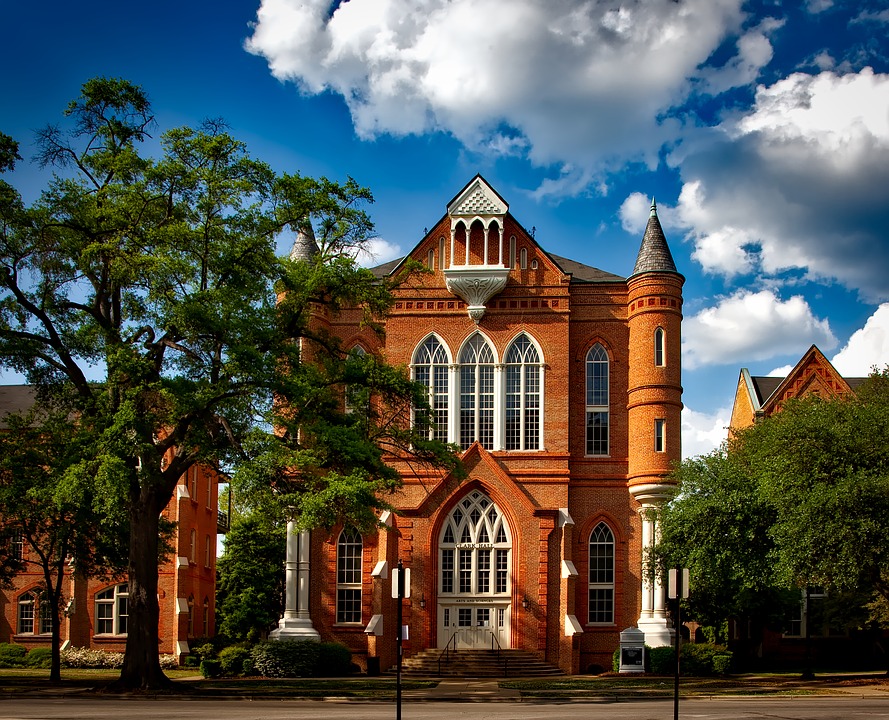If you are planning to study in a degree-seeking program on the undergraduate or graduate level or are organizing an exchange semester or year – it is important to start your planning early. You should give yourself 12 to 18 months (time buffers included) for researching and finding the right fit, the application process and the visa procedure.

There are approximately 4.000 U.S. colleges and universities, so it is not so easy to choose the right fit for you. Therefore, certain factors are crucial for your decision, such as degree programs and course offerings, cost of attendance, financial aid and scholarship opportunities, campus life and support, location and size of university, etc.
For your initial research, College Navigator, Peterson's and College Board are good places to start. All three offer a comprehensive online search for colleges and universities and help students find the right university for them.

You are still in high school or just graduated or are enrolled in a non-U.S. university and would like to get to know the U.S. university system? Then a short-term program is a great option. During the semester break (May to August), it is possible to take courses at many U.S.-American universities. So-called summer sessions or summer schools are usually also open to international students and are offered - depending on the range and size of the university - in various departments. Tuition fees for the summer sessions are the same as for a regular semester and vary greatly depending on the university. In addition to summer schools, many universities also offer special courses to improve English language skills for international students. In addition to the universities, there are summer schools, language schools and other institutes that offer a wide variety of courses for personal, educational and professional development. Some of these opportunities are also open to high school students, such as the EducationUSA Academy and Academy Connects or the Summer Programs of the University of Notre Dame.
You have the cost-effective option of attending a community college. Community colleges offer associate degree programs that lead to an Associate of Arts (A.A.) or Associate of Science (A.S.) degree after two years. There is a distinction between the Terminal Degree Program, which completes vocational training in two years, and the Transfer Degree Program (2+2), which allows transfer into the third year of a bachelor's degree program. Substantially lower tuition in the first two years makes this program attractive to international students. If you plan to transfer to another university after the associate degree, you should always find out about the courses and their credit in advance.
The Bachelor of Arts (B.A.), the Bachelor of Science (B.Sc.), the Bachelor of Engineering (B.Eng.), or the Bachelor of Fine Arts (B.F.A.) are undergraduate degrees, which are awarded after four years of study at a college or university. Undgraduate programs are usually versatile and most programs include liberal arts education in the curriculum.
If you would like to spend one or two semesters abroad at a U.S. university, you should contact the International Office of your German (or other) unversity (such as the University of Tübingen). Your home university has partnerships with other universities around the world. The International Office and its staff members provide information on the university's partnership programs. Those partnerships are beneficial to you as you do not need to pay tuition fees (tuition waiver), just room and board and other expenses. As an exchange student you are enrolled as non-degree seeking student and cannot complete a undergraduate or graduate program. Your home university does not offer a partnership with your desired university? Then you have the option of completing a study abroad as a free mover. However, as a non-degree seeking student the range of studies is limited and tuition fees are also charged.

If you have already completed a bachelor's degree, you have the option to enroll in a graduate program. Upon completion, you will be awarded the title Master of Arts (M.A.), Master of Science (M.Sc.), Master of Laws (LL.M), Master of Engineering (M.Eng.), Master of Fine Arts (M.F.A.) or Master of Business Administration (M.B.A.). Another option is a professional degree. This is a degree that is awarded after studying a subject with a specific professional focus, such as medicine (M.D.) or law (J.D.). The duration of study here is between one and four years depending on the degree program.
The doctorate, the Doctor of Philosophy (Ph.D.), is based on several years of study following a bachelor's or master's degree. This study phase is followed by a comprehensive subject examination (preliminary examination / qualifying examination), after which the research work and writing of the dissertation follow.
The U.S. Department of Education's College Navigator is a comprehensive database that helps students to find the right fit. »weiterlesen
Peterson's College Finder is another online search tool to help students finding the right college. »weiterlesen
Deutsch-Amerikanisches Institut Tübingen
Karlstr. 3 · 72072 Tübingen
Tel. 07071-795 26-0 · Fax 07071-795 26-26
mail [at] dai-tuebingen.de · www.dai-tuebingen.de
Visit us!
Bibliothek: Di - Fr: 13.00 - 18.00, Sa: 11.00 - 14.00 Uhr
Montags geschlossen
Sekretariat: Di - Fr: 9:00 - 18.00 Uhr
Montags geschlossen